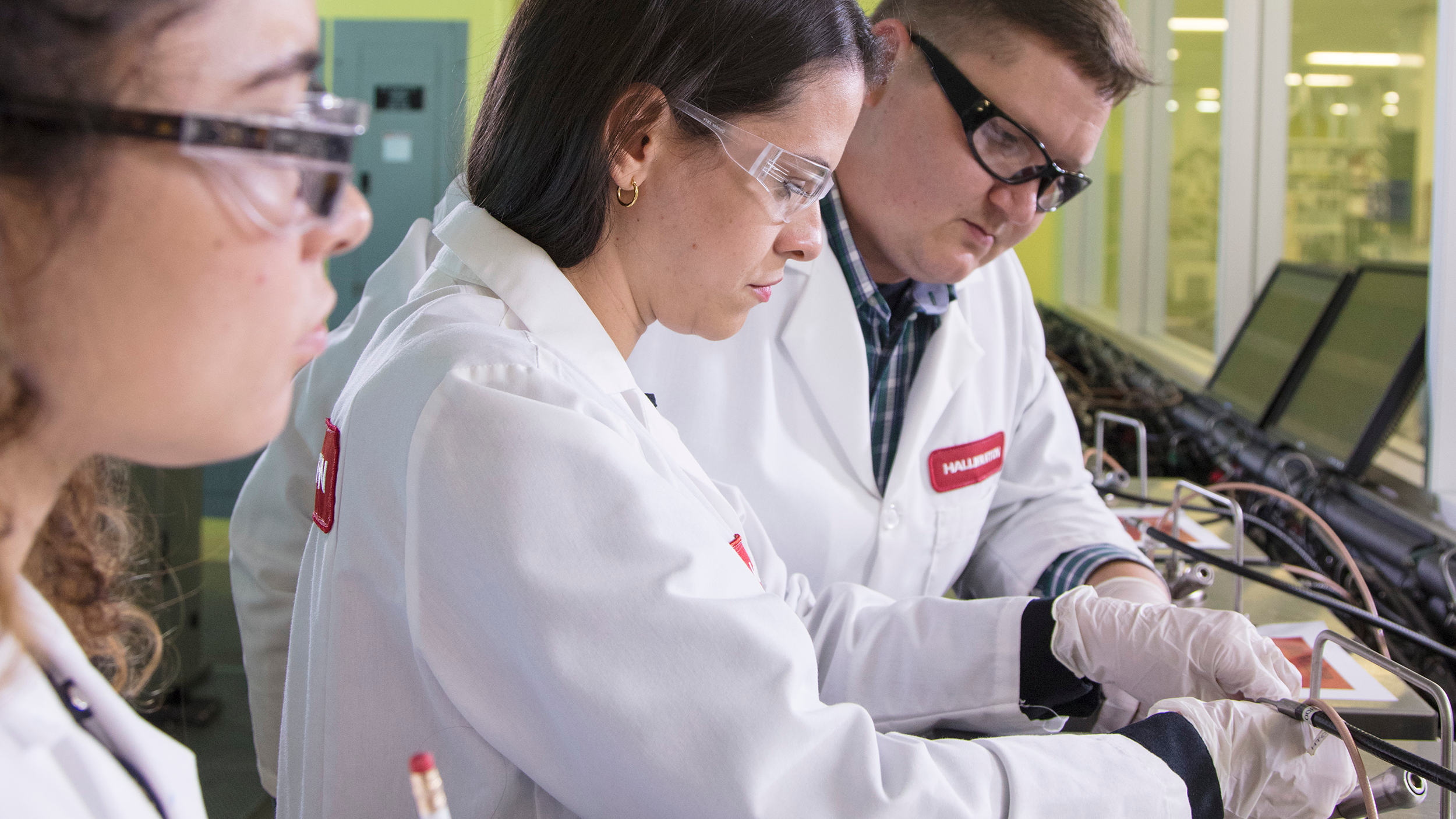 Search
Search
 Search
Search

NeoCem™ cement is a reduced Portland cement system that provides shear bond at lower density and greater elasticity.
Talk to an expertWorking in harsh environments like subterranean basins demands a cement system that delivers high-performance, compressive strength, elasticity, and provides shear bonds at lower densities. NeoCem cement delivers on all points. NeoCem is the result of Halliburton’s research and development team discovering synergies between the chemical and physical properties of specialized materials when combined with Portland cement. The NeoCem cement system is a reduced Portland oilfield cement system capable of improving the integrity of the hydraulic annular seal and the set-sheath elasticity.
NeoCem Cement System
Many believe that higher density equals higher performance.
NeoCem cement is a reduced Portland cement system that delivers high-performance compressive strength, elasticity, and shear bond at a lower density than conventional cement systems.
With NeoCem, wells can withstand the downhole dynamic demands from continual pressure and temperature changes throughout the life of the asset.
NeoCem cement delivers annular barrier properties that help withstand cyclic loading from casing expansion and contraction during production, as well as shut in and/or the concussive forces during drilling and completion. The annular barrier is engineered to resist failure from deformation, fatigue from cycling loading and corrosion, even though pressures and temperatures change throughout the life of a well.
NeoCem is a reduced Portland cement system capable of improving the integrity of a hydraulic annular seal, as well as the set-sheath elasticity. In laboratory testing, performance properties of NeoCem cement were compared to conventional, higher density cement systems. Higher density cement systems typically demonstrate higher compressive strengths, while lower density cement systems generally present reduced performance.
While most lighter cements don’t have the strength of a heavier one, Halliburton has pushed the boundaries on what is possible by creating a lighter cement that is flexible and still provides compressive strength.
Higher shear bond
Compressive strength improvements
Greater elasticity
Compressive strength-to-Young’s-Modulus ratio
